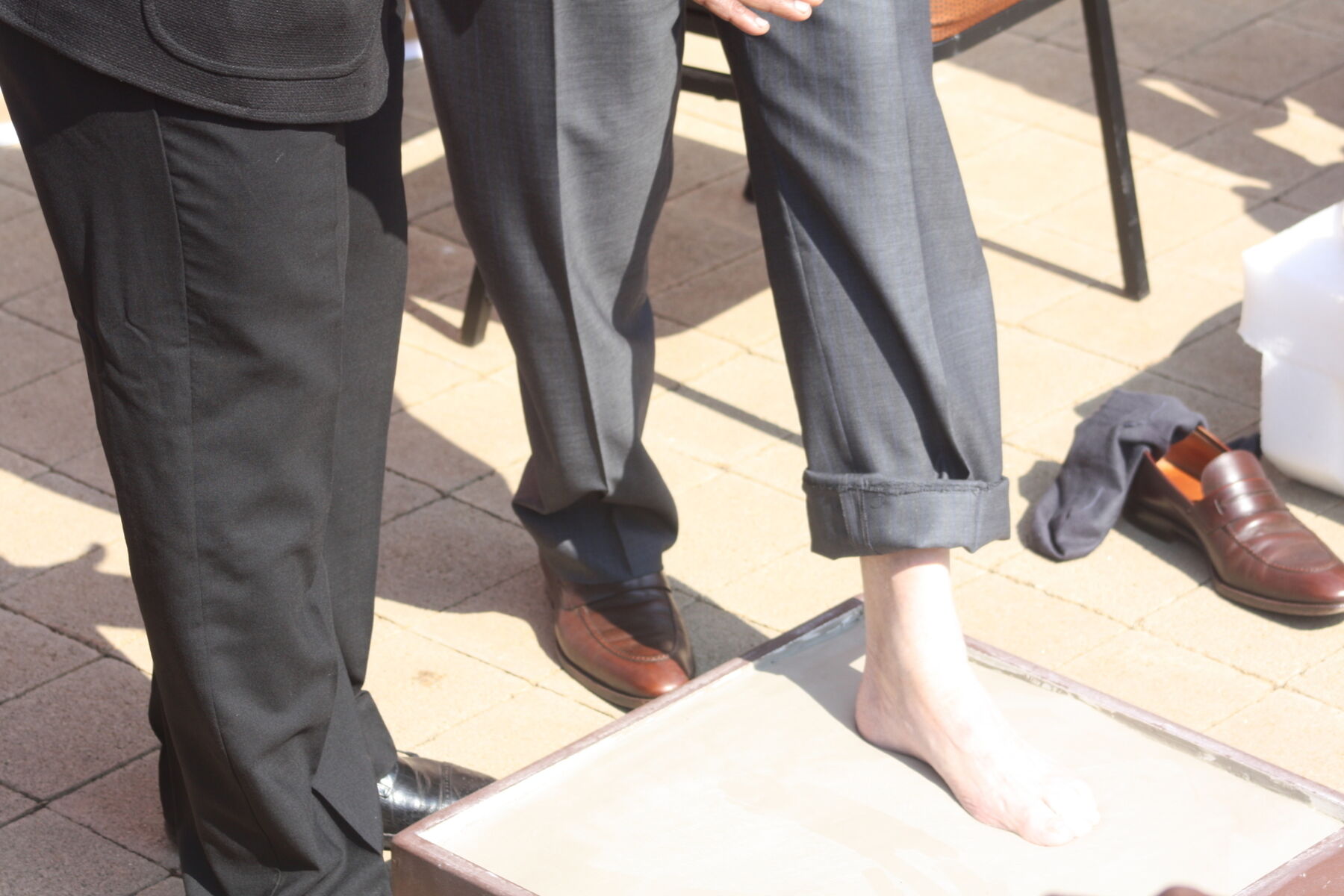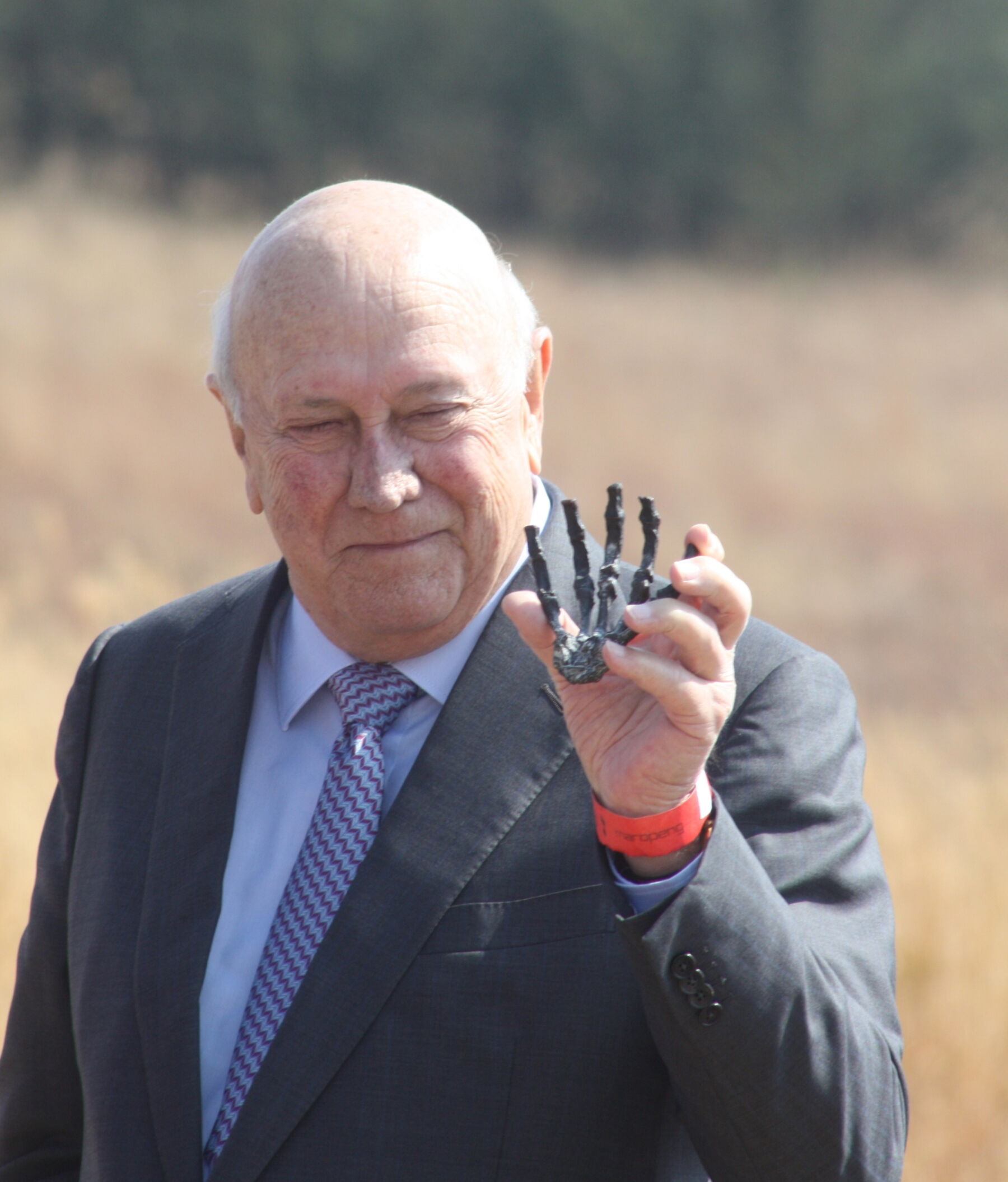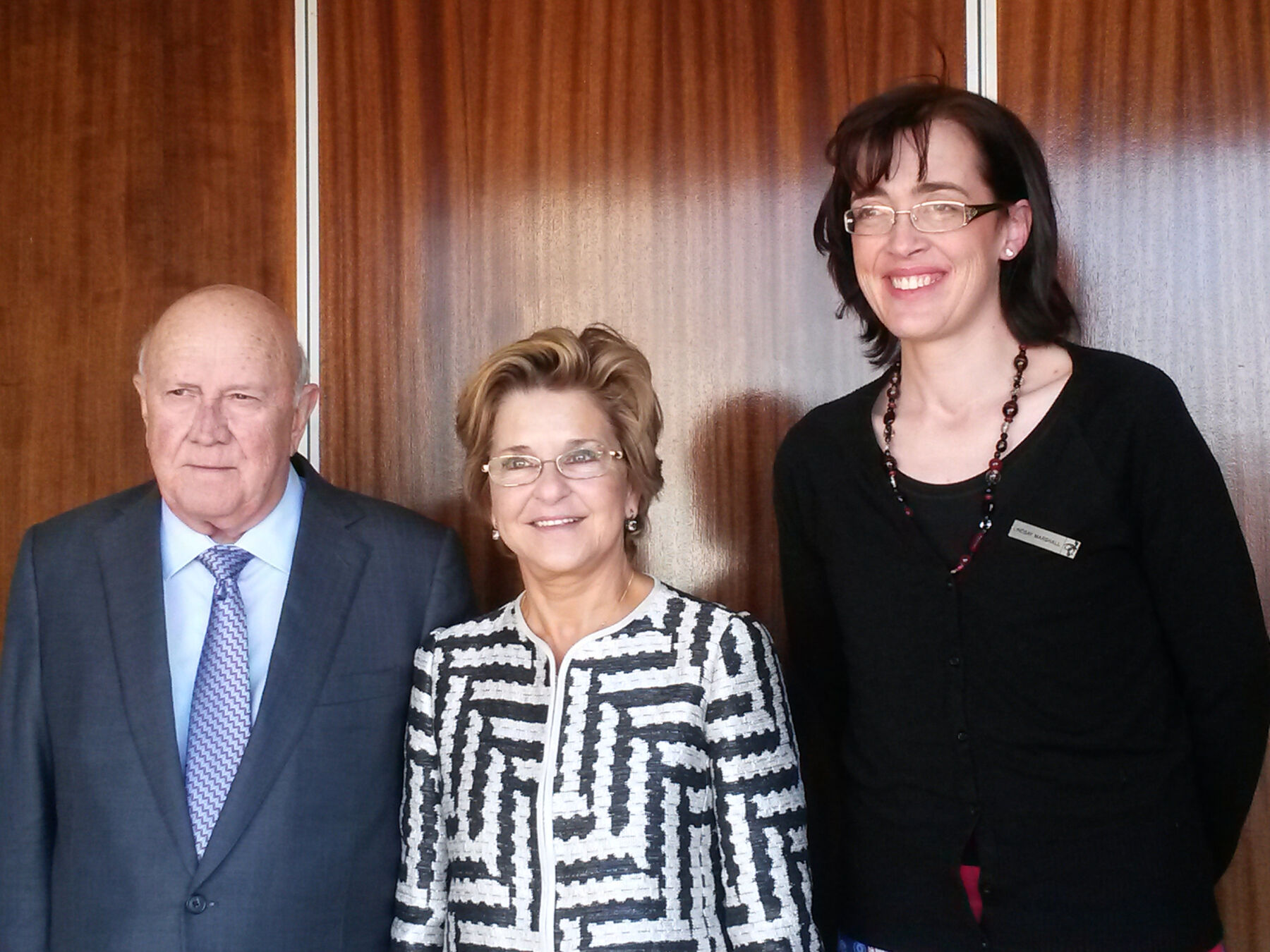
According to Mags Pillay, director of the Cradle of Humankind World Heritage Site, the “heads of state and Nobel laureates footprints strategy is meant to symbolise the story that all living people today can trace their ancestry to the African continent, and to a common and a shared ancestry”.
FW de Klerk, who is both a former head of state and a Nobel laureate, was recently invited to leave his footprint at Maropeng, and Flow attended the ceremony.
De Klerk’s day included a guided walk at the entrance of the Sterkfontein Caves, a tour of the exhibition at the Maropeng Visitor Centre, and a ceremony during which he left his footprint at Maropeng.
We accompanied De Klerk as he “journeyed through time” on the walk at the Sterkfontein Caves, which describes events from the formation of the universe to the evolution of the first hominids on Earth.
Professor Francis Thackeray, director of the Institute for Human Evolution at Wits University, guided De Klerk and his wife, Elita, along the path, explaining each display.

We also joined De Klerk as he toured the exhibition at the Maropeng Visitor Centre. Here, he was guided by Maropeng tour guide Mathabele Tsikoane, who won a Gold Award in the Cultural Site Guide category in the West Rand Tourism 2014 Hospitality Awards.
After the visitor centre tour, we attended the ceremony, during which De Klerk made an imprint of his foot for Maropeng to display alongside those of other Nobel laureates and heads of state, such as Archbishop Emeritus Desmond Tutu and President Jacob Zuma.
At the ceremony speeches were made by Pillay, Councillor Barry Friedman of the Mogale City Municipality, Dawn Robertson, CEO of Gauteng Tourism, palaeoanthropologist Professor Lee Berger, and De Klerk himself.
De Klerk spoke passionately about the unique ability of the human being to manage and affect change in her environment, and said that it is this ability to create change that allows us to do great things. He said he had left his footprint at Maropeng “in the awareness that we are continuing a long process of change”.
Berger also spoke about humanity’s ability to create change, and said that we have the ability “as a species to change the world”, that there are “individuals who changed the world”. De Klerk and the other Nobel laureates and heads of state who have left footprints at Maropeng are examples of such individuals.
De Klerk seemed to greatly enjoy his time at Maropeng, and said of his visit: “We really enjoyed it and found it extremely stimulating.”

